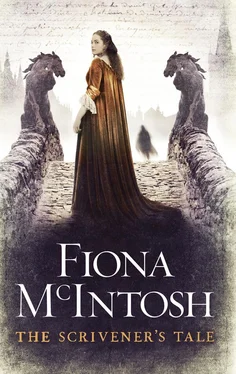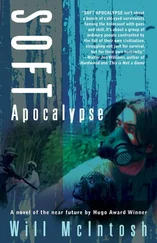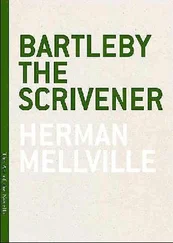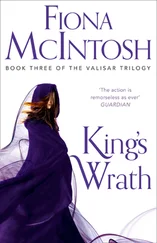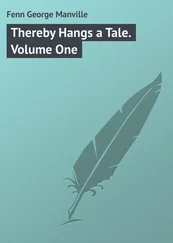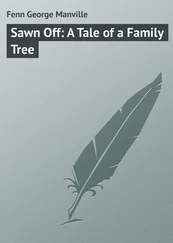But now he could see that dear love-blinded Aphra was his way back into some sort of life. She would provide him with what he lacked once he had captured the magic, understood it and moulded it to suit his needs. Myrren’s magic was his priority; the rest would fall into place.
And so Cyricus remained close to the three realms and began to plot while they became one; he watched the empire rise and flourish, and then begin to wane as factions within its trio of realms erupted to start dismantling what Emperor Cailech and his Empress Valentyna had given so much to achieve. Cyricus couldn’t care less. They could all go to war and he would enjoy watching the carnage … they could limp on, remaining allied but hating one another and it would make not a jot of difference to Cyricus.
All that mattered to him was being able to return to substantial form again — he wanted to be seen again, for his voice to be heard again. And he wanted to make this land — and the Wild that protected it, that had flicked him into the Void — pay for his suffering. His patience knew no bounds and while he tirelessly worked toward his aim he watched as heir upon heir sat on the Morgravian throne, unaware that theirs might be the reign that felt the full impact of his hungry revenge.
In the stillness that came in the hour before dawn, when Paris was at its quietest, a dark shape moved silently through the frigid winter air.
It landed soundlessly on a balcony railing that was crusted with December frost and stared through the window, where the softest glow of a bedside lamp illuminated the face of a sleeping man. The man was not at rest though.
Gabe was dreaming, his eyes moving rapidly behind his lids as the tension within the world of his dream escalated. It was not his favourite dream of being in the cathedral but it was familiar all the same and it frightened him. He’d taught himself to recognise the nightmare whenever and without any warning he slipped into the scene; only rarely did its memory linger. Most times the details of the dream fell like water through his fingers. Gone in the blink of surfacing to an alertness of his reality.
Here it was again: You’re in the nightmare, Gabe , his protective subconscious prodded. Start counting back from ten and open your eyes.
Ten …
Gabe felt the knife enter flesh, which surrendered so willingly; blood erupted in terrible warmth over his fist as it gripped the hilt. He felt himself topple, begin to fall …
… six … five …
He awoke with a dramatic start.
His heart was pounding so hard in his chest he could feel the angry drum of it against his ribcage. This was one of those rare occasions when vague detail lingered. And it felt so real that he couldn’t help but look at his hands for tangible evidence, expecting to see them covered with blood.
He tried to slow his breathing, checking the clock and noticing it was only nearing six and the sky was still dark in parts. He was parched. Gabe sat up and reached for the jug and tumbler he kept at his bedside and drank two glasses of water greedily. The hand that had held the phantasmic knife still trembled slightly. He shook his head in disgust.
Who had been the victim?
Why had he killed ?
He blinked, deep in thought: could it be symbolic of the deaths that had affected him so profoundly? But he also hazily recalled that in his nightmare death had been welcomed by the victim.
Gabe shivered, his body clammy, and allowed the time for his breathing to become deeper and his heartbeat to slow. Paris was on the edge of winter; dawn would break soon but it remained bitingly cold — he could see ice crystals in the corners of the windows outside.
He swung his legs over the side of the bed and deliberately didn’t reach for his hoodie or brushed cotton pyjama bottoms. Gingerly climbing down from the mezzanine bedroom he tiptoed naked in the dark to open the French doors. Something darker than night skittered away but he convinced himself he’d imagined it for there was no sign once he risked stepping out onto the penthouse balcony.
The cold tore at his skin, but at least, shivering uncontrollably, he knew he was fully awake in Paris, in the 6th arrondissement … and his family had been dead for six years now. Gabe had been living here for not quite four of those, after one year in a wilderness of pain and recrimination and another losing himself in restless journeying in a bid to escape the past and its torment.
He had been one of Britain’s top psychologists. His public success was mainly because of the lodge he’d set up in the countryside where emotionally troubled youngsters could stay and where, amidst tranquil surrounds, Gabe would work to bring a measure of peace to their minds. There was space for a menagerie of animals for the youngsters to interact with or care for, including dogs and cats, chickens, pigs, a donkey. Horse riding at the local stables, plus hiking, even simple cake- and pie-baking classes, were also part of the therapy, diverting a patient’s attention outward and into conversation, fun, group participation, bonding with others, finding safety nets for the wobbly times on the tightropes of anxiety.
It was far more complex than that, of course, with other innovative approaches being used as well — everything from psychodynamic music to transactional therapies. Worried parents and carers, teachers and government agencies had all marvelled at his success in strengthening and fortifying the ability of his young charges to deal with their ‘demons’.
Television reporters, journalists and the grapevine, however, liked to present him as a folk hero — a modern-day Pied Piper, using simple techniques like animal husbandry. It allowed his detractors to claim his brand of therapy and counsel was not rooted in academia. Even so, Gabe’s legend had grown. Big companies knocked on his door: why didn’t he join their company and show them how to market to teens, or perhaps they could sponsor the lodge? He refused both options but that didn’t stop his peers criticising him or his status increasing to world acclaim. Or near enough.
Fate is a fickle mistress, they say, and she used his success to kill not only his stellar career but also his family, in a motorway pile-up while on their way to visit his wife’s family for Easter.
The real villain was not his fast, expensive German car but the semi-trailer driver whose eyelids fate had closed, just for a moment. The tired, middle-aged man pushed himself harder than he should have in order to sleep next to his wife and be home to kiss his son good morning; he set off the chain of destruction on Britain’s M1 motorway in the Midlands one terrible late-winter Thursday evening.
The pile-up had occurred on a frosty, foggy highway and had involved sixteen vehicles and claimed many lives, amongst them Lauren and Henry. For some inexplicable reason the gods had opted to throw Gabe four metres clear of the carnage, to crawl away damaged and bewildered. He might have seen the threat if only he hadn’t turned to smile at his son …
He faced the world for a year and then he no longer wanted to face it. Gabe had fled to France, the homeland of his father, and disappeared with little more than a rucksack for fifteen months, staying in tiny alpine villages or sipping aniseed liquor in small bars along the coastline. In the meantime, and on his instructions, his solicitor had sold the practice and its properties, as well as the sprawling but tasteful mansion in Hurstpierpoint with the smell of fresh paint still evident in the new nursery that within fourteen weeks was to welcome their second child.
He was certainly not left poor, plus there was solid income from his famous dead mother’s royalties and also from his father’s company. In his mid-thirties he found himself in Paris with a brimming bank account, a ragged beard, long hair and, while he couldn’t fully call it peace of mind, he’d certainly made his peace with himself regarding that traumatic night and its losses. He believed the knifing dream was symbolic of the death of Lauren and Henry — as though he had killed them with a moment’s inattention.
Читать дальше
